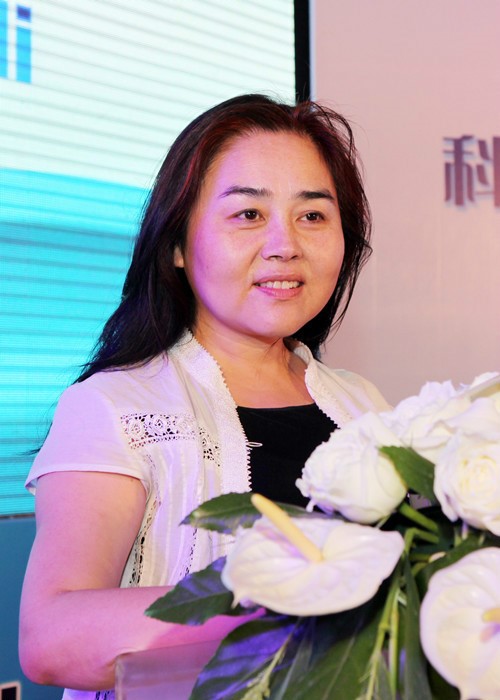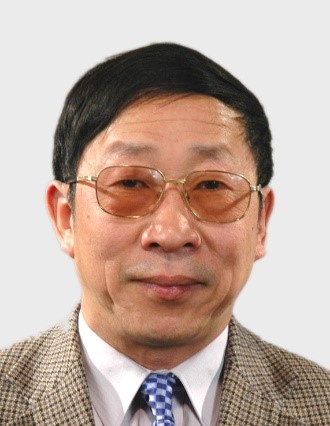PLENARY SPEAKERS:
Plenary talk 1: 8:30---9:30(Oct 11)
Professor Hong Qiao
Institute of Automation, Chinese Academy of Sciences
Title: ARIE based intelligent operational framework to achieve high-precision manipulation with low-precision systems
Abstract: In recent years, robotic manipulation technologies with high precision and flexibility have received significant attention, especially in the fields of aerospace, electronics, and industrial engineering. The method to achieve high precision manipulation mainly including active methods using full sensor information and passive compliance methods. Attractive region in environment (ARIE) based method is one of the passive compliance methods which can effectively achieve high-precision manipulation with low-precision systems by using the constraints formed by the environment. In order to promote the widely application of ARIE on robot, we established an operational framework that integrates the intelligent manipulation strategy and compliant motion control based on ARIE. Through a unique method of formulation and utilization of the attractive region in the configuration space, the feasible and reliable manipulation strategy to attain the high-precision assembly in physical space without a force sensor and flexible wrist could be designed, and the approach to achieve 2-D and 3-D part orientation by sensorless grasping and pushing actions was also provided. Through the ARIE-guided online compliant control, the operation fulfills high precision, high reliability, high speed, and high flexibility all at once during one robotic manipulation task.
 Brief CV: Hong Qiao is deputy director of State Key Laboratory of Management and Control for Complex Systems, the group leader of Robotic Theory and Application (more than 50 researchers) in Institute of Automation, CAS. She is Winner of National Natural Science Funds for Distinguished Young Scholar, IEEE Fellow, IEEE Award Board Member and IEEE RAS AdCom Member. Prof. Qiao has made excellent contributions to interdisciplinary research between robotics and other areas and also among different directions in robotic area. She is an internationally-recognized and highly-cited pioneer researcher in high-precision robotic manipulation and biologically-inspired robotic cognition and manipulation. Her contributions are evidenced by more than 230 international journal and conference papers (150 SCI Indexed) with 2900+ total citation and H-Index of 28, and 56 patents. Her theory of “Attractive Region in Environment (ARIE)” —reported as “Qiao’s Concept” —has been widely applied in industrial robots in China. She was awarded Second Prize of the National Natural Science Award (the highest fundamental research award in China) in 2014. She also serves as AEs of 6 IEEE Transactions and Editor-in-chief of Assembly Automation (SCI). She established three industrialization bases in China for robotic assembly and detection. Some of the products became standardized and achieved best seller in local market. The base in Huizhou also got rewarded as New-type R & D institutions by local government.
Brief CV: Hong Qiao is deputy director of State Key Laboratory of Management and Control for Complex Systems, the group leader of Robotic Theory and Application (more than 50 researchers) in Institute of Automation, CAS. She is Winner of National Natural Science Funds for Distinguished Young Scholar, IEEE Fellow, IEEE Award Board Member and IEEE RAS AdCom Member. Prof. Qiao has made excellent contributions to interdisciplinary research between robotics and other areas and also among different directions in robotic area. She is an internationally-recognized and highly-cited pioneer researcher in high-precision robotic manipulation and biologically-inspired robotic cognition and manipulation. Her contributions are evidenced by more than 230 international journal and conference papers (150 SCI Indexed) with 2900+ total citation and H-Index of 28, and 56 patents. Her theory of “Attractive Region in Environment (ARIE)” —reported as “Qiao’s Concept” —has been widely applied in industrial robots in China. She was awarded Second Prize of the National Natural Science Award (the highest fundamental research award in China) in 2014. She also serves as AEs of 6 IEEE Transactions and Editor-in-chief of Assembly Automation (SCI). She established three industrialization bases in China for robotic assembly and detection. Some of the products became standardized and achieved best seller in local market. The base in Huizhou also got rewarded as New-type R & D institutions by local government.
———————————————————————————————————————————————————————-
Plenary talk 2: 16:20---17:20(Oct 12)
Professor Huosheng Hu
School of Computer Science and Electronic Engineering
University of Essex, Colchester CO4 3SQ, United Kingdom
https://www.essex.ac.uk/people/huhuo40009/huosheng-hu
Title: Evolution and Future Trend of AI and Robotic Systems
Abstract: After recent advancement of AI and robotics technologies, autonomous robots are gradually serving us in our home, hospital, office and everywhere. They are intelligent and interactive, inspired from behaviour demonstration of biological systems. However, these robots face several engineering challenges. Firstly, they must deal with uncertainty within the systems, such as sensor noise, actuator inaccuracy, and components failure. Secondly, they must deal with a huge uncertainty in the real world, which is dynamically changing over time. Thirdly, they must communicate with humans in order to provide services. In this talk, I will firstly outline the evolution and future trend of AI and robotics technologies, and then present our research work toward the advanced robotic systems, based on inspiration from biological systems. More specifically, behaviour modelling, sensor data fusion and sensor-based control are discussed respectively, and some preliminary experimental results are demonstrated through video.

Brief CV: Huosheng Hu is Professor and Head of Robotics and Mechatronics Group in the School of Computer Science and Electronic Engineering at the University of Essex, United Kingdom. He received the MSc degree in industrial automation from the Central South University in China in 1982 and the PhD degree in robotics from the University of Oxford in the U.K. in 1993. His research interests include autonomous robots, embedded systems, data fusion, human-robot interaction, machine learning algorithms, cloud computing and mechatronics. He has published over 500 papers in journals, books and conferences in these areas. Prof. Hu is a Fellow of Institute of Engineering & Technology, a Fellow of Institute of Measurement & Control, a founding member of IEEE Robotics & Automation Society Technical committee on Networked Robots. He has been a Program Chair or a member of Advisory Committee for many international conferences such as IEEE ICRA, IROS, ICMA, ROBIO. He is currently Editor-in-Chief for International Journal of Automation and Computing, and Executive Editor for International Journal of Mechatronics and Automation.
